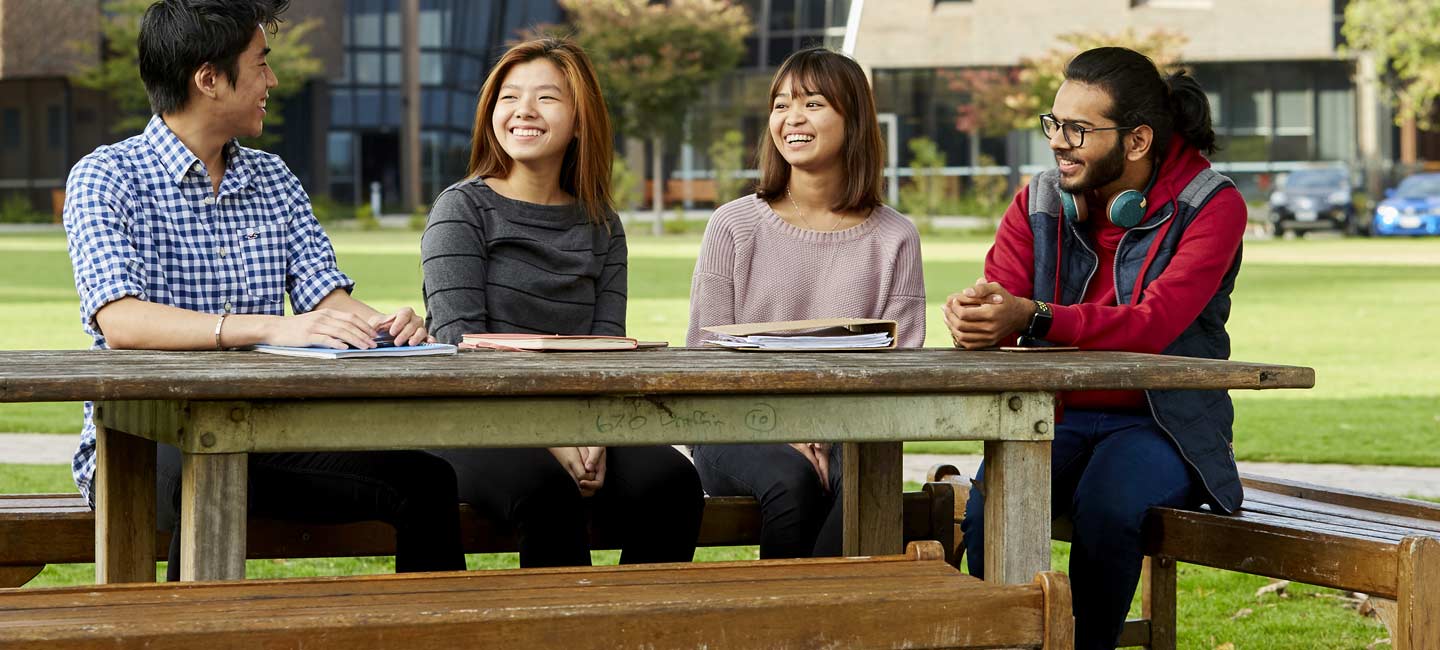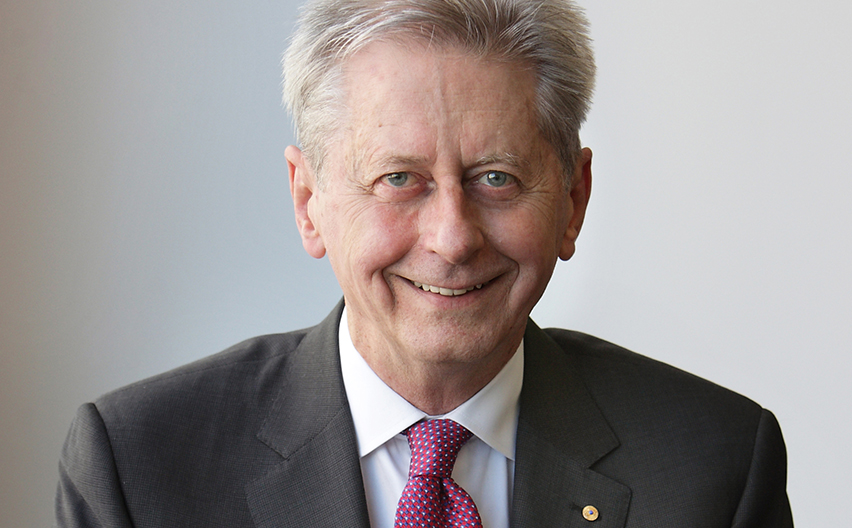


Ronald William Trafford Cowan became the third Warden of Trinity College in 1946 and moved on to the Trinity College campus at Parkville, living in what we know as the Deanery today. Later the Cowan family moved into the New Warden’s Lodge (which has since become the Old Warden’s Lodge).
As a child, Bill came to see the picturesque College grounds and neighbouring University of Melbourne as one giant park, primed for running, climbing and cycling. ‘In those days there wasn't any OHS stopping us doing crazy things,’ remembers Bill. ‘You could help milk the cows, ride around on the tractor mowing the university oval, and when buildings were being constructed, you could climb up the scaffolding onto the rooftop. It was a wonderful place to grow up.’
Bill formally entered Trinity College as a resident student in 1963, studying electrical engineering for four years. He was elected as Senior Student in 1966. After graduating, Bill remained at Trinity as a resident engineering tutor for a further three years, rounding out an unbroken 24-year on-campus connection with Trinity. ‘There can't be too many people around that have been connected to and lived on the Trinity grounds for so long,’ he chuckles.
Bill cut his physical ties to Trinity when he won a Harkness Fellowship to study for two years at Harvard Business School in Boston, where he became a Baker Scholar. He then lived and worked overseas with McKinsey & Company for nearly a decade, first in London and then in New York, before returning to Melbourne as a partner of McKinsey. In the early 1980s, as though tethered to a long elastic cord, Trinity College pulled Bill back, where he faced the concerning reality that Trinity was under significant financial stress.
Bill joined the Trinity Finance Committee (which at that time functioned like today’s Board) and led discussions that focused on finding a way to rectify the College’s financial challenges. As a first step, fees were raised, while, at the same time, a generous scholarship program was established. The Trinity College Foundation was also launched in the early 1980s to facilitate fundraising. As facilities were upgraded and marketing efforts were sharpened, Trinity’s bottom line began to improve, however it remained clear that more needed to be done if Trinity was to be renowned as a world-class institution.
Suggestions to construct an underground carpark and to offer more extensive conference facilities were put forward and scratched, but the idea of developing a pathways school that would help international students gain entry into the University of Melbourne stuck.
‘This idea was very contentious at the time and many people thought an international school would damage Trinity and its ethos,’ says Bill. ‘But others, including myself, felt it was a big opportunity to change the game. An international school would not only be good for Trinity financially if we could make it successful, but also vital for our students if we were going to be part of a bigger world. [The resident students] would meet or be involved with outstanding students from many other countries, and it would also be good for the people from other countries because they'd be in a fantastic place to prepare for studying at Melbourne University.’
The Foundation Studies program was approved by the Trinity College Council in 1989 and, though the program wobbled as it found its feet, it soon began gaining momentum. ‘After a few years of hard work by everyone involved, particularly Tony Buzzard and Denis White, it took off and has never looked back,’ says Bill.
The shaky start made many people nervous, but Bill doesn’t recall ever feeling worried about the program’s success. ‘I was always one of the optimists. My sense of it was that there are two billion people north of us [in Asia], and we had to be able to get 500 of them to come to Trinity and the University of Melbourne. I thought: “This should not be an impossible task” and was always a believer that it would work.’
Bill is also credited for not wavering in his focus on the program’s end goal – and that was to help international students to excel in their studies at the University of Melbourne. ‘It wasn’t about finding the cheapest way for us to run our program. My big question was always, “Are we providing the right quality of teaching and support to help our students succeed at Melbourne University, not only in their chosen studies but also to grow as future leaders in Asia?” Because, if we were helping them to do that successfully, then Trinity would also be successful.’
Bill was Chair of the Trinity College Board from 2005 to 2013 and oversaw the decision to construct the Gateway Building on Trinity’s Parkville campus to help support the growing Foundation Studies program. Until 2012, there was no formal contract with the University of Melbourne to ensure that it would continue to accept students who had graduated from Trinity’s program. So, Bill, on behalf of the Board, approached the Vice Chancellor to formalise the relationship, thus ensuring Trinity College would be the sole provider of Foundation Studies students to the University for at least the next five years. With this surety, the Gateway Building was constructed, and opened in 2016.
During his time at Trinity, sitting on many committees as well as the Board and the Council (which he serves on to this day), Bill says he’s clocked up more than 1000 meetings. These meetings have covered topics including governance, buildings and grounds, finances, philanthropy, student welfare, and Trinity’s upcoming 150th anniversary.
‘My question has always been “how can Trinity grow its standing as a world-class institution in everything the College does?”. We were given our land by the people of Victoria and I think we owe it to our community to make sure Trinity is a superb asset for them. As it has turned out, the Foundation Studies program has played a vital part in helping to build the Trinity that we are all so proud of today, with its extraordinarily diverse and capable students, outstanding staff and great facilities.’
